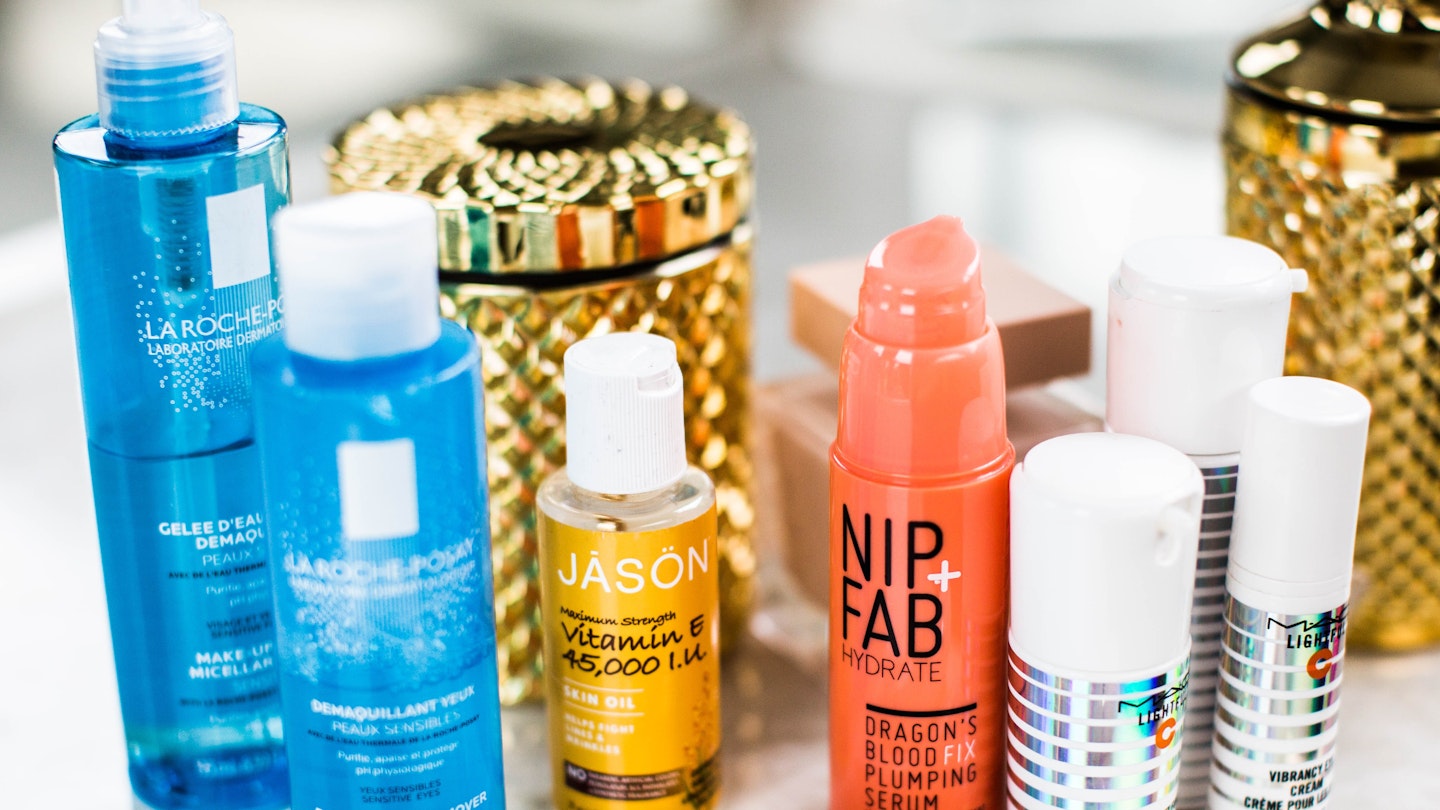When was the last time you had a good clear-out of your beauty stash? Whilst it may not be top on your to-do list, it appears that the majority of us are hoarding products that are well past their prime. A recent survey from cosmetic comparison platform, Cosmetify, revealed that a whopping 97% of UK women have expired products in their make-up bag. And these expired beauty products can actually compromise the skin.
We've spoken to Dr David Bank, founder of The Center For Dermatology, Cosmetic & Laser Surgery in New York, to found out exactly what expired products do to our skin and how we can find out if a product is past its best.
What happens when I use expired cosmetics?
‘Expired cosmetics can cause skin irritation and eye infections,’ say Dr Bank. Scary stuff! But the consequences aren’t always so dreary. For example, an old moisturiser may just cause break outs or not be able to help keep premature wrinkles at bay anymore. But, with all the money you splashed on it, why take the risk?
How can I tell when my beauty products have expired?
Ever noticed that little symbol that looks like an open jar on your cosmetics? It features the letter M and a number (like 12M). That’s the POA (Period After Opening) date. It tells you how many months you have to finish them all up, so 12M means 12 months. That’s if you remember when you first opened them. The POA tends to be on the packaging that the product comes in rather than the product itself - so it's worth making a note of the number on the product.

There are also other tell-tale signs, including changes in texture, colour, or scent which can all mean it's time to toss them.
When do make-up products expire?
'Mascaras and liquid eyeliners have the shortest life span and should be replaced every four to six months,’ states Dr Bank. ‘Because the applicator is in and out of the product, bacteria can be directly inoculated into the make-up.’ Change yours as frequently as you can.
Concealers and foundations last between six to 12 months. ‘If the product starts to separate or gets an “off” smell, it’s time to replace it.’ Dr Bank also recommends to apply them with clean brushes or sponges to avoid bacterial contamination.
Lip glosses and lipsticks can last up to a year. ‘But they do contain oils that will make the lipstick go bad.’ To prolong its life span, Dr Bank recommends cleaning your lipstick with a cleansing wipe. It’ll remove the surface layer of bacteria and germs on top, avoiding the risk of infections.
'Blushers and eye shadows usually last a bit longer, generally up to two years.’ Dr Bank suggests you wipe them regularly too, ‘to help keep them clean and avoid the potential of bacteria growth.’
When do skincare products go bad?
Anti-aging creams and serums, and anti-acne treatments last three to six months only. They contain active ingredients, like antioxidants (vitamin C, retinol, green tea, etc) and powerful acne-fighters like salicylic acid and benzoyl peroxide, that ‘become unstable and break down when exposed to air, light, and heat,’ explains Dr Bank.
Sunscreens last six months. Sunscreen agents are very fragile, and they suffer the same fate as antioxidants, Dr Bank tells me. So, use them up quickly. Holding on to them until next summer may be tempting, but it's also dangerous. By then, the SPF won’t protect you anymore, and you’ll end up with a bad case of scorched skin. It’s not worth it, is it?
Cleansers typically keep for six months. That’s how long they’ll make our skin squeaky clean.
What should I do?
Replace your cosmetics often. But don’t be too hasty and throw them out too soon either! Like milk, cosmetics can still be good for a few days (or in this case, months), after their expiration date. As long as you store them properly.
‘Remember the more a product is exposed to air and potential bacteria, the shorter the lifespan,' says Dr Bank.
The solution? 'Store your favourite products at an optimal temperature, away from direct sunlight and seal them after each use.’ Try not to leave your jars open in the bathroom - even when you're in a rush.
READ MORE: So, Should You Really, Honestly, Spend Time Cleaning Your Make-Up Brushes?
READ MORE: The Big Beauty Clear Out: How To Refresh Your Make-Up Bag
